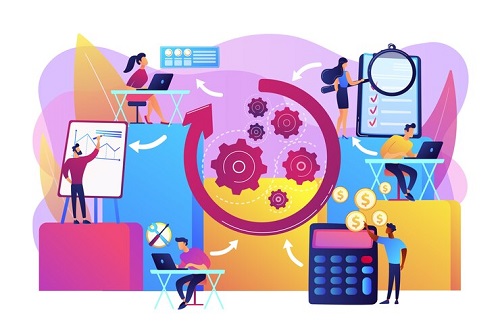In today’s fast-paced world, project management is more than just ticking off tasks on a to-do list. It involves navigating complex environments, adapting to unforeseen changes, and steering teams toward successful outcomes. This blog delves into the essential skills and strategies needed to master complexity in project management, ensuring success even in the most challenging scenarios.
Understanding Complexity in Project Management
Defining Complex Project Environments
Complex project environments are characterized by numerous interconnected parts, unpredictable variables, and high levels of uncertainty. These projects often span multiple departments, involve diverse stakeholders, and require innovative solutions. The complexity arises from the dynamic nature of the components and the intricate relationships between them.
Challenges Unique to Managing Complex Projects
Managing complex projects presents unique challenges, such as:
- Uncertainty and Change: Constant changes in requirements and external factors can derail progress.
- Interdependencies: Multiple interrelated tasks and teams can complicate coordination.
- Stakeholder Diversity: Balancing the needs and expectations of various stakeholders is crucial yet challenging.
Impact of Complexity on Project Outcomes
Complexity can significantly impact project outcomes, often leading to delays, budget overruns, and quality issues. However, with the right strategies, these challenges can be transformed into opportunities for innovation and growth.
Strategic Planning and Vision
Importance of Setting a Clear Vision and Objectives
A clear vision provides direction and purpose, aligning all project activities toward a common goal. It serves as a guiding star, ensuring that even amidst complexity, the project remains focused.
Strategic Planning Techniques for Complexity
Effective strategic planning involves:
- Scenario Planning: Anticipating various future scenarios and preparing accordingly.
- SWOT Analysis: Identifying strengths, weaknesses, opportunities, and threats to better navigate complexities.
Tools for Effective Roadmap Creation
Tools like Gantt charts, PERT diagrams, and mind mapping software can help create detailed roadmaps, offering a visual representation of the project timeline and dependencies.
Adaptive Leadership and Decision Making
Defining Adaptive Leadership
Adaptive leadership involves being flexible and responsive to change, empowering teams to innovate and solve problems creatively. It’s about leading with agility and resilience.
Decision-Making Models for Complex Scenarios
In complex environments, decision-making models such as the OODA Loop (Observe, Orient, Decide, Act) and the Cynefin Framework can be invaluable. These models help leaders assess situations quickly and make informed decisions.
Examples of Successful Adaptive Leadership
Consider the leadership during the Apollo 13 mission, where adaptive decision-making was crucial in overcoming unexpected challenges and ensuring the crew’s safe return.
Communication and Stakeholder Engagement
Importance of Clear Communication
Clear communication is the backbone of successful project management. It ensures everyone is on the same page, reducing misunderstandings and aligning efforts toward common objectives.
Strategies for Effective Stakeholder Engagement
Engaging stakeholders involves:
- Regular Updates: Keep stakeholders informed through consistent communication.
- Active Listening: Understand and address stakeholder concerns and feedback.
Tools and Techniques for Managing Expectations
Utilizing tools like stakeholder maps and communication plans can help manage expectations and foster stronger relationships.
Risk Management and Problem Solving
Role of Risk Management in Complex Environments
Risk management is critical in identifying potential issues before they become problems. It involves assessing risks, prioritizing them, and developing mitigation strategies.
Techniques for Proactive Problem Solving
Techniques such as root cause analysis and brainstorming sessions can help teams proactively address issues before they escalate.
Successful Risk Management Strategies
The construction of the Burj Khalifa involved extensive risk management strategies, ensuring the project was completed safely and successfully despite numerous challenges.
Agile and Flexible Methodologies
Introduction to Agile Methodologies
Agile methodologies promote flexibility and responsiveness, enabling teams to adapt to changes quickly. They focus on iterative progress, customer collaboration, and delivering value.
Importance of Flexibility and Adaptability
Flexibility allows teams to pivot when necessary, ensuring that projects remain relevant and aligned with stakeholder needs.
Case Studies of Successful Agile Implementation
Spotify’s use of agile methodologies has been instrumental in its ability to innovate and adapt to the rapidly changing music streaming industry.
Emotional Intelligence and Team Dynamics
Defining Emotional Intelligence
Emotional intelligence involves understanding and managing one’s emotions and the emotions of others. It is crucial for effective leadership and team collaboration.
Influence of Team Dynamics on Project Success
Positive team dynamics foster collaboration, creativity, and productivity. They are essential for navigating complex projects successfully.
Strategies for Fostering a Positive Team Environment
Encouraging open communication, recognizing achievements, and promoting inclusivity can enhance team dynamics and morale.
Continuous Learning and Improvement
Importance of Learning from Past Projects
Continuous learning involves reflecting on past projects to identify successes and areas for improvement. It fosters a culture of growth and innovation.
Methods for Continuous Improvement
Methods such as the PDCA (Plan-Do-Check-Act) cycle and retrospectives can help teams continuously improve their processes and outcomes.
Examples of Feedback Loops and Iterative Processes
Tech companies like Google use iterative processes and feedback loops to refine their products and services continually.
Future Trends in Project Management
Emerging Trends and Technologies
Emerging trends such as AI, machine learning, and remote collaboration tools are transforming project management, offering new ways to manage complexity.
Leveraging Trends in Complex Environments
By embracing these trends, project managers can enhance efficiency, improve decision-making, and drive innovation.
Predicting Future Skills for Project Managers
Future project managers will need skills in digital literacy, data analysis, and virtual team management to thrive in increasingly complex environments.
Mastering complexity in project management requires a blend of strategic vision, adaptive leadership, and continuous learning. By embracing these skills and strategies, project managers can navigate challenges and drive their projects to success, even in the most complex environments.



